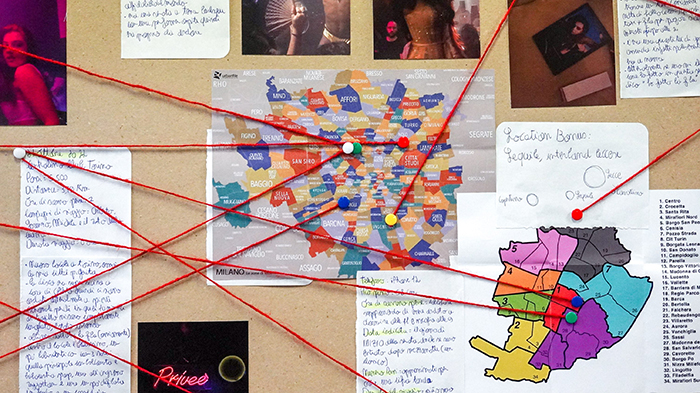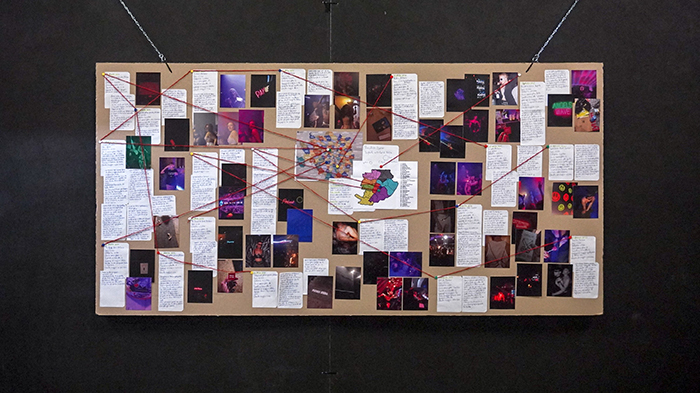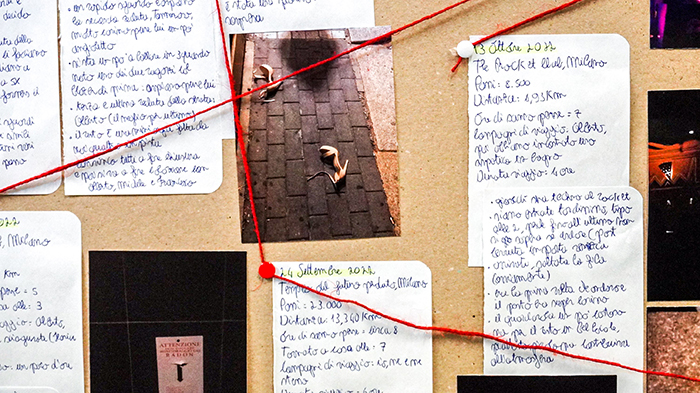A la recherche des pas perdus
By Giulio Alessandrini
“À la recherche des pas perdus” is a collection of thoughts, fascinations and pictures that documents the nights out I spent dancing during the last semester. These events are perfectly captured by the medium: a travel journal that documents the traveler’s (myself) experiences and reflections on the journeys (the nights out). The pages and pictures have been torn from the journal and displayed on a wall like detectives do with evidence during an investigation: will I be able to find my lost footsteps?





